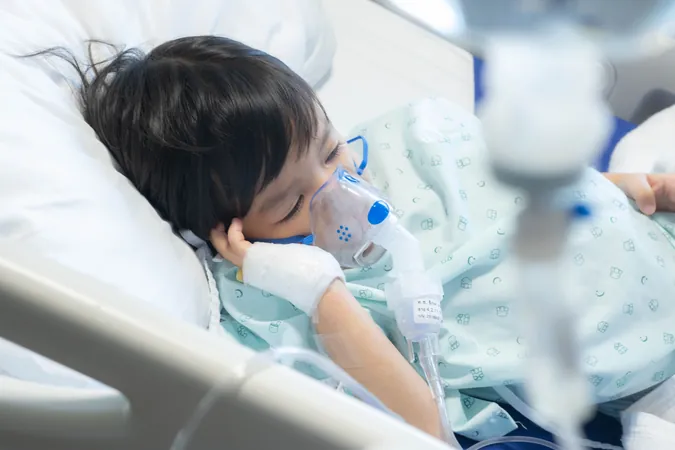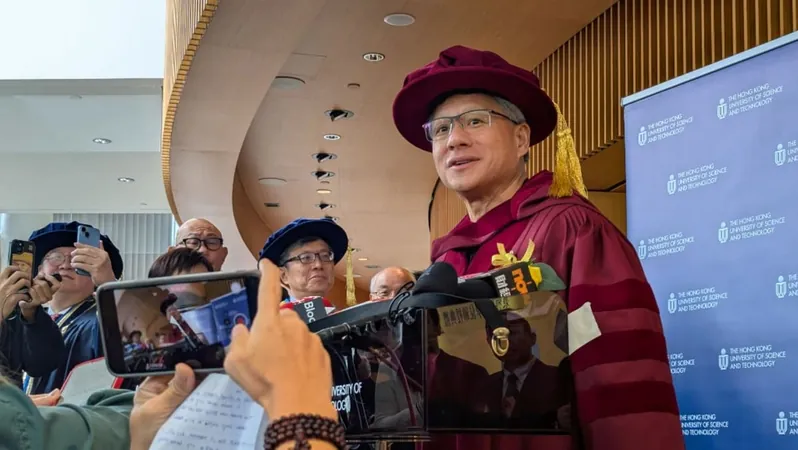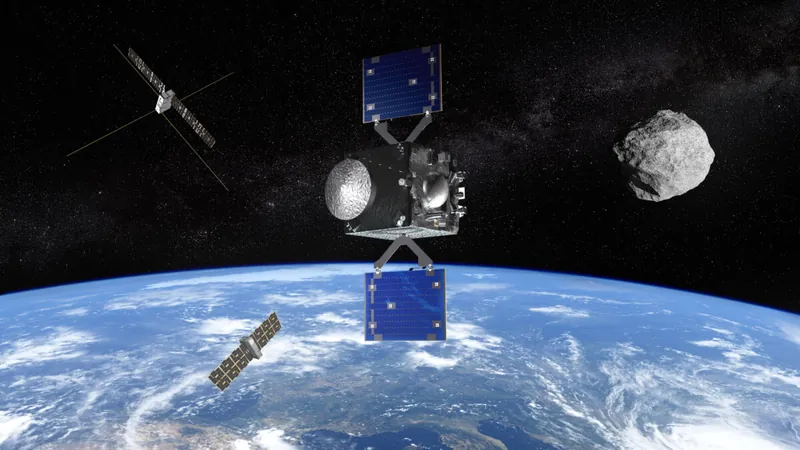
Condition Watch: Respiratory Syncytial Virus (RSV) Season Update
2024-11-20
Author: Nur
Boosting Supply: New Manufacturing Line for nirsevimab-alip (Beyfortus)
As the 2024-2025 respiratory syncytial virus (RSV) season approaches, pharmaceutical giants Sanofi and AstraZeneca are ramping up production capabilities with the launch of a newly approved filling line for nirsevimab-alip, known commercially as Beyfortus. This move is aimed at overcoming the supply challenges faced during the previous RSV season. The companies have committed to ensuring adequate vaccine availability to cover all eligible infants in the United States, specifically targeting those under 8 months who were born to mothers lacking maternal vaccine coverage, as well as high-risk children aged 8 to 19 months.
Thomas Grenier, the head of vaccines for North America at Sanofi, expressed optimism: “This upcoming season, we look forward to Beyfortus offering its demonstrated real-world protection to as many infants as possible.” Shipments of 50 mg and 100 mg doses of nirsevimab-alip are set for distribution through private healthcare providers and the CDC’s Vaccines for Children Program.
Following a limited supply of Beyfortus last season, the CDC advised that healthcare providers focus on administering the 100 mg dose to the highest-risk infants. However, with the new filling line's added capacity, the companies anticipate no repeat of last year’s shortages, aiming to meet the needs of all infants impacted by RSV.
Stunning Effectiveness: 82% Reduction in Infant Hospitalizations
Recent findings published in The Lancet reveal that during the 2023-2024 RSV season, nirsevimab (Beyfortus) led to an impressive 82% reduction in hospitalizations among infants due to RSV. This data originated from the NIRSE-GAL study conducted in Galicia, Spain, showcasing the positive impact of nirsevimab after its introduction. Complementary evidence from various child immunization programs across the US, Spain, and France further solidifies these findings.
In addition, the CDC's surveillance data indicates that a single nirsevimab dose was remarkably 90% effective in preventing RSV-related hospitalizations for infants vaccinated before 8 months. The study highlighted that infants with pre-existing risk factors were significantly more likely to receive the vaccine compared to their healthier peers.
As the RSV season unfolds, nirsevimab is expected to provide robust protection for high-risk infants, making it a crucial tool in reducing the incidence of severe RSV cases. This includes not only those born healthy but also those born preterm and children under 2 who remain susceptible in their second RSV season.
Cost-Effectiveness of RSV Vaccination for Seniors
A recent study by the University of Michigan and the CDC has evaluated the cost-effectiveness of RSV vaccinations among individuals aged 60 and older. The analysis focused on two FDA-approved vaccines, Arexvy (GSK) and Abrysvo (Pfizer), underscoring the recommendation for older adults to receive a single dose.
The findings indicate that the economic impact of vaccination varies by age group and vaccine type, with the estimated cost per quality-adjusted life year (QALY) saved being $196,842 for Arexvy and $176,557 for Abrysvo among those 60 years and older. While these figures suggest a favorable cost-effectiveness profile for RSV vaccination, the researchers caution the need for additional studies to confirm the long-term efficacy and economic benefits of these vaccines.
Conclusion: A Promising Season Ahead
As we look forward to the upcoming RSV season, the advancements in vaccine supply and recent evidence supporting nirsevimab’s effectiveness paint a reassuring picture for both infants and older adults susceptible to RSV. With the commitment of healthcare providers and the pharmaceutical industry to combat RSV, there is hope for a significant reduction in hospitalization rates and broader vaccine accessibility. Stay informed and protect your loved ones from the seasonal threat of RSV!



 Brasil (PT)
Brasil (PT)
 Canada (EN)
Canada (EN)
 Chile (ES)
Chile (ES)
 España (ES)
España (ES)
 France (FR)
France (FR)
 Hong Kong (EN)
Hong Kong (EN)
 Italia (IT)
Italia (IT)
 日本 (JA)
日本 (JA)
 Magyarország (HU)
Magyarország (HU)
 Norge (NO)
Norge (NO)
 Polska (PL)
Polska (PL)
 Schweiz (DE)
Schweiz (DE)
 Singapore (EN)
Singapore (EN)
 Sverige (SV)
Sverige (SV)
 Suomi (FI)
Suomi (FI)
 Türkiye (TR)
Türkiye (TR)